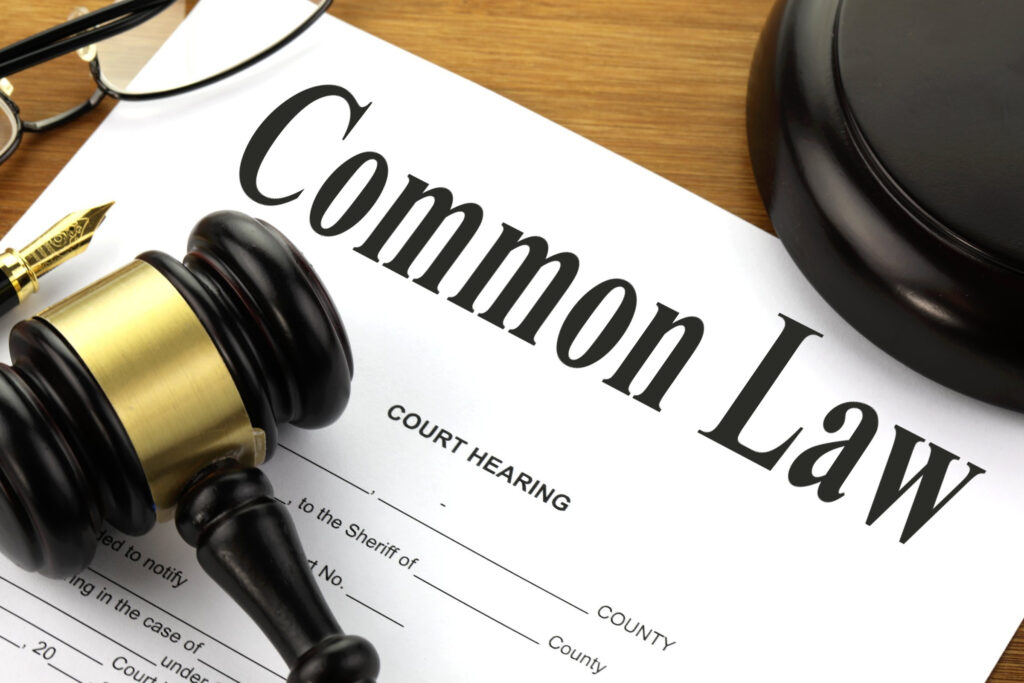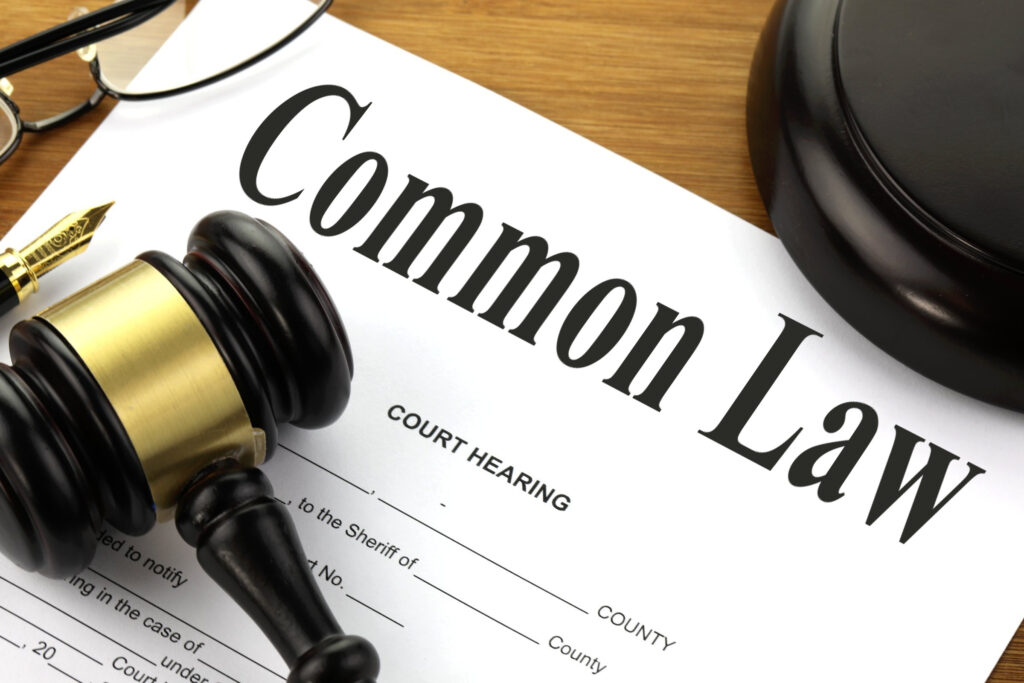Common law marriage refers to a marriage that is legally recognized even though no formal ceremony or documentation took place. Instead, the union is established through the couple’s actions, conduct, and agreement to be married. While recognized in some states, Maryland does not permit common law marriages created within its borders. However, it may acknowledge common law marriages validly formed in other states. This article will clarify Maryland’s stance, discuss implications for residents, and offer practical guidance.
Contents
What is Common Law Marriage?
To understand Maryland’s position, let’s first define common law marriage. A common law marriage is a partnership that meets certain criteria:
- The couple lives together and presents themselves publicly as married.
- They have the legal capacity to wed and mutually consent to be married.
- They establish a reputation in their community as being married.
So in essence, if a couple acts married, they can be considered married under common law, even without a wedding or marriage certificate.
This type of informal marriage dates back centuries in Western culture. The concept originated in England and became widely practiced in American colonies and frontier areas where officiants were scarce. All U.S. states recognized common law marriages at some point. Today, only a handful still allow new common law marriages to be formed within their borders.
Maryland’s Legal Position on Common Law Marriage
Maryland statutorily abolished new common law marriages created within the state in 1968. This means couples cannot enter into a legally valid common law marriage in Maryland. Attempting to do so produces no marital rights or protections.
However, Maryland does recognize common law marriages validly formed in other states. So if a couple meets the requirements to establish a common law marriage in a state that allows it, Maryland courts will uphold it. This respects common law marriages as legal contracts across state lines.
Implications of Maryland’s Stance on Common Law Marriage
Maryland’s refusal to permit new common law marriages formed locally carries important legal and social consequences.
Legally, couples in Maryland have none of the rights, benefits, and protections provided in law to married spouses. This affects:
- Asset division and alimony rights if the relationship ends
- Inheritance and estate claims if a partner dies
- Health insurance coverage, medical decisions, and hospital visitation
- Parental rights and child custody
- Immunity from testifying against one another
- Tax benefits
Socially, the lack of common law marriage may disadvantage couples who present themselves as husband and wife. They don’t enjoy the same recognition and legitimacy as married pairs.
Overall, the absence of common law marriage in Maryland means couples must take proactive steps to secure legal protections. Relying solely on acting married does not equate to having a real legal marriage.

Legal Alternatives and Protections in Maryland
Lacking common law marriage, what options exist in Maryland for couples seeking protections? Here are some potential avenues:
- Registering as domestic partners: Some counties allow same-sex and opposite-sex couples to register as domestic partners, providing limited rights/benefits.
- Creating cohabitation agreements: Contracts allow couples to arrange financial matters, property ownership, inheritance, etc.
- Drawing up wills, medical directives, and powers of attorney: These establish inheritance rights and make medical/financial decisions for an incapacitated partner.
- Jointly purchasing homes, bank accounts, assets: Careful title ownership and documentation creates joint interests in property.
- Having children together: Unmarried parents still have parental rights and custodial claims over mutual kids.
- Building evidence of economic interdependence: Joint tax returns, insurance policies, bills, and shared expenses help demonstrate a partnership.
Thoughtfully documenting the relationship and making legal arrangements help approximate some protections afforded married couples. Consulting attorneys is wise to fully understand options.
Recognizing Out-of-State Common Law Marriages
As noted, Maryland upholds common law marriages legally formed in other states. This respects the Full Faith and Credit Clause of the U.S. Constitution, which requires states to honor contracts, records, and rulings from other states. So if a couple meets the requirements to establish a common law marriage elsewhere, Maryland must recognize it.
However, the courts have a process to verify an out-of-state common law marriage is bona fide. Factors considered include:
- If the couple resided in a state that permitted common law marriage at the time
- Whether the couple met all elements of common law marriage in that state
- If public records demonstrate the union (joint tax returns, insurance policies, property deeds, etc.)
- Affidavits from family/community members aware of the marriage
In contested cases, credible evidence must prove the couple verifiably acted as spouses in the state where the common law marriage originated.
Practical Advice for Maryland Residents
Given Maryland’s laws, what steps should couples residing here take?
- Don’t assume you’ll acquire marital rights just by living together as a married couple. Take legal actions to secure rights.
- Review your assets and property titles. Clarify ownership interests via contracts and joint titling.
- Execute key documents like wills, medical directives, and powers of attorney. Update beneficiaries on insurance policies, bank accounts, pensions, etc.
- Seek legal counsel to understand your options and create any needed contracts.
- If you relocated from a state that allowed common law marriage, collect evidence you and your partner met the requirements to claim that status.
- If having a ceremonial wedding, follow through by legally registering your marriage to avoid any doubt.
Protecting your family requires considering more than just romantic intentions. Take proactive legal steps unique to Maryland’s landscape.
Conclusion
While common law marriage is recognized in some states, Maryland specifically prohibits it for in-state unions. The state only upholds common law marriages validly formed elsewhere. This stance produces real legal and social implications for couples in Maryland aiming to establish spousal rights. Though common law marriage is unavailable, other options exist to secure protections. Anyone in a serious cohabitating relationship should explore these alternatives through thoughtful contracts and documentation. Doing so can help approximate some of the rights afforded married pairs under the law. Overall, couples in Maryland cannot rely on acting married alone. But with prudence and good legal guidance, many protections can be put in place.
FAQs:
How do I prove I’m in a common law marriage from another state?
Collect documentation like tax returns, property deeds, insurance policies showing you presented yourselves as a married couple. Also affidavits from people familiar with your reputation as spouses. Evidence must demonstrate you met all your former state’s requirements.
What rights do children have if their parents are in a common law marriage?
Children born to a legally valid common law marriage have the same rights as those born to ceremonial marriages. Both parents have custody claims, inheritance rights, etc. Paternity may need to be separately established for fathers.
Can I claim Social Security benefits or insurance from my common law spouse?
If you have a properly documented common law marriage, you can claim Social Security benefits, health insurance coverage, and other spousal entitlements from your partner. Proper proof of the marriage will be required.
What happens to our property if we break up and aren’t legally married?
With no recognized common law marriage, you have no automatic property rights as a married couple would. Ownership would revert to whoever holds legal title. That’s why written agreements on property division are so important.
Can we file taxes jointly if we’re common law married but not formally wed?
If you have adequately documented your common law marriage, you can file joint state and federal tax returns. You’ll need to provide evidence of your marriage if audited.
Scott A. Bentley Attorney at Law in McHenry, IL is a debt relief and personal injury attorney dedicated to helping people in their time of need. He can assist in filing bankruptcy under the bankruptcy code or work with you through a personal injury case. His more than 25 years of experience provide him with the insight and knowledge you need when contending with difficult legal issues. Scott Bentley bankruptcy services stop: Creditor harassment, Lawsuits, Garnishments, Foreclosures, Repossessions, By filing for chapter 7 or 13 bankruptcy with Scott Bentley, you’ll also be able to create personal reorganization plans that serve to resolve individual bankruptcy issues. He and his staff are committed to providing you with dignified service and the respect you deserve. Just because you owe someone or some company money doesn’t mean you forfeit your rights. With Mr. Bentley you can be sure you will receive personalized attention and aggressive legal representation. The firm is proud to

